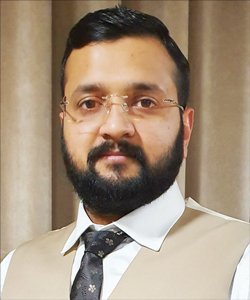The Journey to Recovery: How a Piles Surgeon Guides You Through Treatment


Updated on: 4th Jun 2024
Millions of individuals worldwide suffer with hemorrhoids, also referred to as piles, which may be an uncomfortable and upsetting condition. Although the road to recovery may appear difficult, patients can travel through therapy with ease and confidence when they have the assistance of a knowledgeable piles surgeon. This blog will discuss how a piles surgeon helps patients find comfort and recuperation by being there for them at every turn in their medical journey.
Understanding Hemorrhoids: A Brief Overview
Similar to varicose veins, hemorrhoids are enlarged veins in the lower rectum and anus. Hemorrhoids can form beneath the skin around the anus or into the rectum (external hemorrhoids). Pain, itching, swelling, and rectal bleeding are typical symptoms.
Hemorrhoids can occur as a result of a number of conditions, such as extended sitting, straining during bowel movements, pregnancy, obesity, and chronic constipation or diarrhea. Modest cases can generally be resolved with lifestyle modifications, while more serious cases frequently call for medical attention.
The Initial Consultation: Building Trust and Understanding

The first step on the road to rehabilitation is to see a good surgeon. This gathering is important for a number of reasons.
Diagnosis and Assessment: The surgeon will conduct a thorough physical examination and review the patient’s medical history to accurately diagnose the type and severity of hemorrhoids. Diagnostic tests such as a digital rectal exam, anoscopy, or colonoscopy may be performed to gain a clearer understanding of the condition.
Patient Education: During this consultation, the surgeon educates the patient about hemorrhoids, their causes, and potential treatment options. This education helps demystify the condition and sets realistic expectations for the treatment process.
Building Trust: Establishing a rapport with the surgeon is essential for the patient’s confidence and comfort. A compassionate and understanding approach helps build trust, which is vital for a successful treatment journey.
The Kshar Sutra Procedure

Preparation
Specifically prepared medicated thread is used in Kshar Sutra therapy. This thread is coated with a blend of natural alkaline materials, primarily from the Apamarga (Achyranthes aspera) plant, along with additional components including snuhi latex and turmeric. To make sure the thread is sufficiently medicated, the coating process is performed multiple times.
Application
Initial Consultation: An Ayurvedic surgeon does a comprehensive examination to identify the location and intricacy of the fistula before beginning the treatment.
Anesthesia: To ensure the patient is comfortable throughout the treatment, local anesthetic is used to numb the area.
Insertion: The fistulous tract is meticulously filled with the Kshar Sutra. Usually, a probe is used for this, inserting it into the fistula’s exterior opening and emerging through its interior opening. After that, the thread is knotted to create a loop.
Healing Process: In order to promote healing and gently cut through the fistula tract, the medicated thread is used. The plant-based ingredients aid in tissue regeneration, inflammation reduction, and the removal of contaminated material.
Thread Replacement: The surgeon’s advice or a weekly replacement of the thread is used. Until the tract heals completely, each replacement aids in further cutting it through. Several weeks to several months may pass during this process, depending on how complicated the fistula is.
Benefits of Kshar Sutra Therapy

Minimally Invasive: Kshar Sutra therapy is less invasive than traditional surgery, which lowers the chance of problems and speeds up healing.
Effective in Complex Cases: Treatment for complex and recurrent fistulas that may be difficult to treat surgically is especially successful with this approach.
Preservation of Sphincter Function: The maintenance of anal sphincter function, which reduces the likelihood of incontinence, is one of the major benefits.
Natural Healing: Utilizing herbal remedies encourages self-healing and lessens reliance on synthetic and antibiotic medications.
Outpatient Procedure: Kshar Sutra therapy is typically administered as an outpatient procedure, enabling patients to go home the same day and carry on with their regular lives with the least amount of disturbance.
Scientific Validation
Contemporary research has substantiated the effectiveness of Kshar Sutra therapy, emphasizing both its success rate and safety profile. Studies that have been published in a number of medical journals demonstrate the great success rate and low recurrence and complication rates of Kshar Sutra therapy. Patients have reported significant symptom reduction and an improvement in their quality of life following clinical trials demonstrating the efficacy of the therapy in treating both simple and severe anal fistulas.
Case Studies

Case Study 1: Successful Treatment of a Complex Fistula

A male patient, 45 years old, arrived with a complicated anal fistula, excruciating discomfort, and recurring abscesses. Because the fistula was so close to the anal sphincter, traditional surgical procedures carried a significant risk of incontinence during recovery. The therapy method of choice was Kshar Sutra therapy. The patient had weekly thread replacements for a total of twelve weeks. The patient reported no recurrence or incontinence, and the fistula tract had fully healed at the end of the treatment.
Case Study 2: Treatment of a Recurrent Fistula

Once several surgical procedures failed, a 30-year-old female patient with a history of recurring anal fistula received Kshar Sutra therapy. Within eight weeks, the patient showed full healing as a result of the treatment’s successful response. The patient’s quality of life significantly improved, and a year’s worth of follow-up revealed no evidence of recurrence.
Conclusion
Anal fistulas can be successfully treated using the tried-and-true Ayurvedic Kshar Sutra therapy, which is a less invasive, safer option to traditional surgery. It is a beneficial option for people experiencing this agonizing illness because of its capacity to support natural healing, maintain sphincter function, and treat difficult instances. Kshar Sutra treatment is evidence of Ayurveda’s timeless wisdom in tackling modern health issues, since contemporary research confirms its effectiveness.
Patients suffering from the incapacitating symptoms of anal fistula can start on the path to better health and natural recovery by adopting Kshar Sutra therapy. If you or someone you know is experiencing an anal fistula, you might want to look into this age-old but potent therapy option by speaking with an Ayurvedic practitioner.
Meet Our Specialists

Dr. Raj Kumar Garg (B.A.M.S.)
40+ Years of Experience

Dr. Rahul Garg (B.A.M.S.)
15+ Years of Experience

